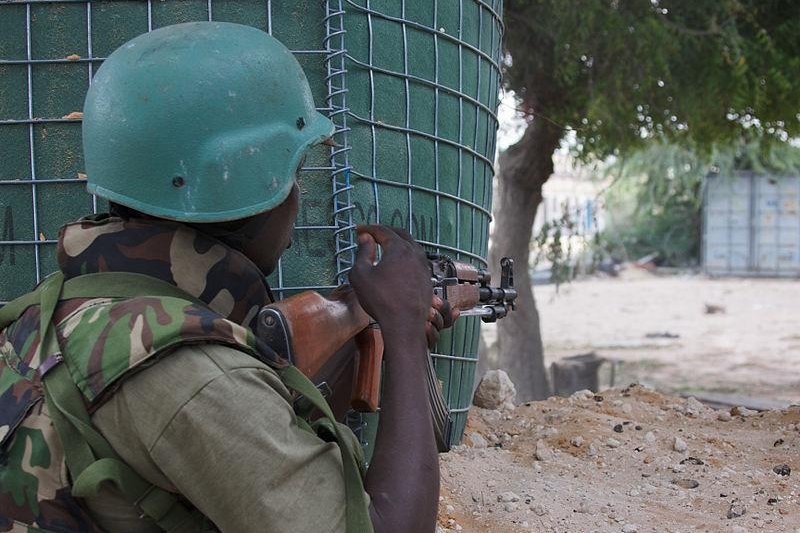A Ugandan soldier takes cover in Mogadishu, Somalia. The Ugandan military announced Monday it would withdraw its forces from South Sudan per the requirements in a peace agreement signed by government and rebel forces in the country in August.
AMISOM photo/ Wikimedia Commons
JUBA, South Sudan, Oct. 13 (UPI) -- The Ugandan army said Monday it will exit South Sudan per the requirement of a peace deal signed by rebel and government officials in August.
The BBC quoted Ugandan defense chief Gen. Katumba Wamala as saying his soldiers would leave the country by Nov. 1.
The withdrawal was a key rebel demand in the agreement, which was brokered by regional leaders and called for Ugandan troops to leave country by Oct. 1.
Since 2013, South Sudan has been locked in civil war after President Salva Kiir accused his former deputy, Riek Machar, of plotting a coup. Machar denied the charge but then led a rebel force against the Kiir government, which was backed by intervening Ugandan military forces.
Both sides have since been accused of atrocities in the 21-month-old conflict, which has led to thousands of deaths.
In June, the United Nations released a report suggesting widespread human rights abuses by the Sudan People's Liberation Army, including raping and burning of girls.
Meanwhile, the African Union, which independently conducted an inquiry showing both rebel and government forces had committed atrocities, late last month announced it would establish a war crimes court for South Sudan -- another requirement of the August agreement.
The BBC quoted Uganda's Minister of State for Foreign Affairs Henry Okello Oryem as saying his country's intervention "helped to stop what was likely to be the worst genocide in the region."
Gen. Johnson Oloni, rebel leader of the Shilluk militia -- which is accused of forcing hundreds of boys to become child soldiers -- called Kiir's recent plan to create 18 new states in South Sudan a "naked power grab," according to the BBC, and indicated he may order his militia to continue fighting.















